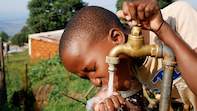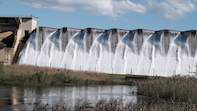The Water Research Commission supplies South Africa with various resources and tools to educate not only the water sector, but those who lack crucial information on water safety and sustainability.
The Water Research Commission are overseen by the Department of Water and Sanitation (DWS), with whom they work closely to ensure their services are up to date and accurate.
Their knowledge centre and e-tools offer access to a multitude of research projects which can be downloaded on various software platforms. These projects vary in subjects and are useful to farmers, students and other academics, such as rainwater harvesting, clean water estimates and upcoming research products that will improve the water sector.
The Water Research Commission’s programmes are innovative and supportive of all participants in the water sector. Some of their enterprising programmes include the Women in Water Empowerment Programme’s (WWEP), which aims to uplift women-owned and led enterprises to be effective and efficient in delivering water and sanitation-related services to the public, as well as Framework Programme for Research, Education & Training in the Water Sector (Fetwater) that assess education and training needs for integrated water resources management in South Africa.
Furthermore, the Water Research Commission has numerous worksheets and lesson plans available to educators to enrich their curriculum and engage with their students on water issues such as conservation, access to clean water, sustainability and innovation within the sector. They also supply students with a comprehensive career guide to support those who might want to pursue a career in the water sector, be it in central, provincial, or local government, the water industry (water or sewage works), other related services, or academia (e.g. research).


 Seventy percent, of the earth’s surface, is covered by water. Ninety-seven percent of all water on earth is salt water. Less than three pe...
Seventy percent, of the earth’s surface, is covered by water. Ninety-seven percent of all water on earth is salt water. Less than three pe...